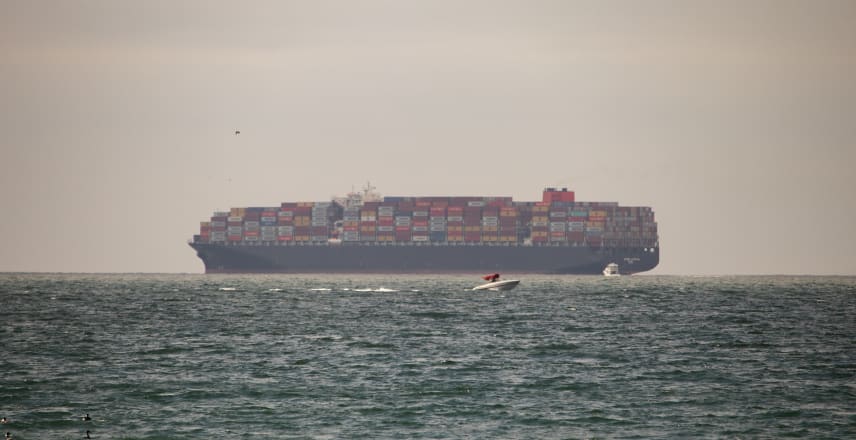Summary
Docker is a popular open-source containerization platform that enables developers to package applications into isolated containers for easy deployment and management. Docker Compose and Dockerfile are two of the most important components of the Docker platform. Docker Compose is a tool for defining and running multi-container Docker applications, while Dockerfile is a text document that contains all the commands a user could call on the command line to assemble an image. In this article, we will discuss the differences between Docker Compose and Dockerfile, their advantages and disadvantages, and how they can be used together.
What is Docker Compose?
Docker Compose is a tool for defining and running multi-container Docker applications. It allows developers to define a set of containers, their configuration, and how they should be linked together in a single file. This file can then be used to create and run the application with a single command. Docker Compose is a great tool for quickly setting up and running complex applications with multiple containers.
What is Dockerfile?
Dockerfile is a text document that contains all the commands a user could call on the command line to assemble an image. It is used to create Docker images, which are the basis for running containers. A Dockerfile is a set of instructions that tells Docker how to build an image. It contains commands such as which base image to use, which packages to install, which files to copy, and which commands to run.
What are the differences between Docker Compose and Dockerfile?
The main difference between Docker Compose and Dockerfile is their purpose. Docker Compose is used to define and run multi-container Docker applications, while Dockerfile is used to create Docker images.
Syntax
The syntax of Docker Compose and Dockerfile is also different. Docker Compose uses a YAML-based syntax, while Dockerfile uses a plain-text syntax.
Usage
Docker Compose is used to define and run multi-container Docker applications, while Dockerfile is used to create Docker images.
Flexibility
Docker Compose is more flexible than Dockerfile, as it allows developers to define multiple containers and their configuration in a single file. Dockerfile, on the other hand, is limited to creating a single image.
Security
Docker Compose is more secure than Dockerfile, as it allows developers to define multiple containers and their configuration in a single file. This makes it easier to ensure that all containers are configured securely. Dockerfile, on the other hand, is limited to creating a single image, which makes it more difficult to ensure that all components are secure.
Performance
Docker Compose is more performant than Dockerfile, as it allows developers to define multiple containers and their configuration in a single file. This makes it easier to ensure that all containers are configured optimally for performance. Dockerfile, on the other hand, is limited to creating a single image, which makes it more difficult to ensure that all components are configured optimally for performance.
Scalability
Docker Compose is more scalable than Dockerfile, as it allows developers to define multiple containers and their configuration in a single file. This makes it easier to scale the application as needed. Dockerfile, on the other hand, is limited to creating a single image, which makes it more difficult to scale the application.
Cost
Docker Compose is more cost-effective than Dockerfile, as it allows developers to define multiple containers and their configuration in a single file. This makes it easier to manage costs as the application grows. Dockerfile, on the other hand, is limited to creating a single image, which makes it more difficult to manage costs.
Advantages of Docker Compose
- Allows developers to define multiple containers and their configuration in a single file
- Easier to ensure that all containers are configured securely
- Easier to ensure that all containers are configured optimally for performance
- Easier to scale the application as needed
- Easier to manage costs as the application grows
Advantages of Dockerfile
- Allows developers to create a single image
- Easier to create a single image
- Easier to ensure that all components are secure
- Easier to ensure that all components are configured optimally for performance
Disadvantages of Docker Compose
- Limited to defining and running multi-container Docker applications
- More complex syntax
Disadvantages of Dockerfile
- Limited to creating a single image
- More complex syntax
Conclusion
Docker Compose and Dockerfile are two of the most important components of the Docker platform. Docker Compose is a tool for defining and running multi-container Docker applications, while Dockerfile is a text document that contains all the commands a user could call on the command line to assemble an image. While both have their advantages and disadvantages, they can be used together to create powerful and secure applications.
FAQs
Q: What is Docker Compose? A: Docker Compose is a tool for defining and running multi-container Docker applications.
Q: What is Dockerfile? A: Dockerfile is a text document that contains all the commands a user could call on the command line to assemble an image.
Q: What are the differences between Docker Compose and Dockerfile? A: The main difference between Docker Compose and Dockerfile is their purpose. Docker Compose is used to define and run multi-container Docker applications, while Dockerfile is used to create Docker images.
Q: What are the advantages of Docker Compose? A: The advantages of Docker Compose include allowing developers to define multiple containers and their configuration in a single file, easier to ensure that all containers are configured securely, easier to ensure that all containers are configured optimally for performance, easier to scale the application as needed, and easier to manage costs as the application grows.
Q: What are the advantages of Dockerfile? A: The advantages of Dockerfile include allowing developers to create a single image, easier to create a single image, easier to ensure that all components are secure, and easier to ensure that all components are configured optimally for performance.














